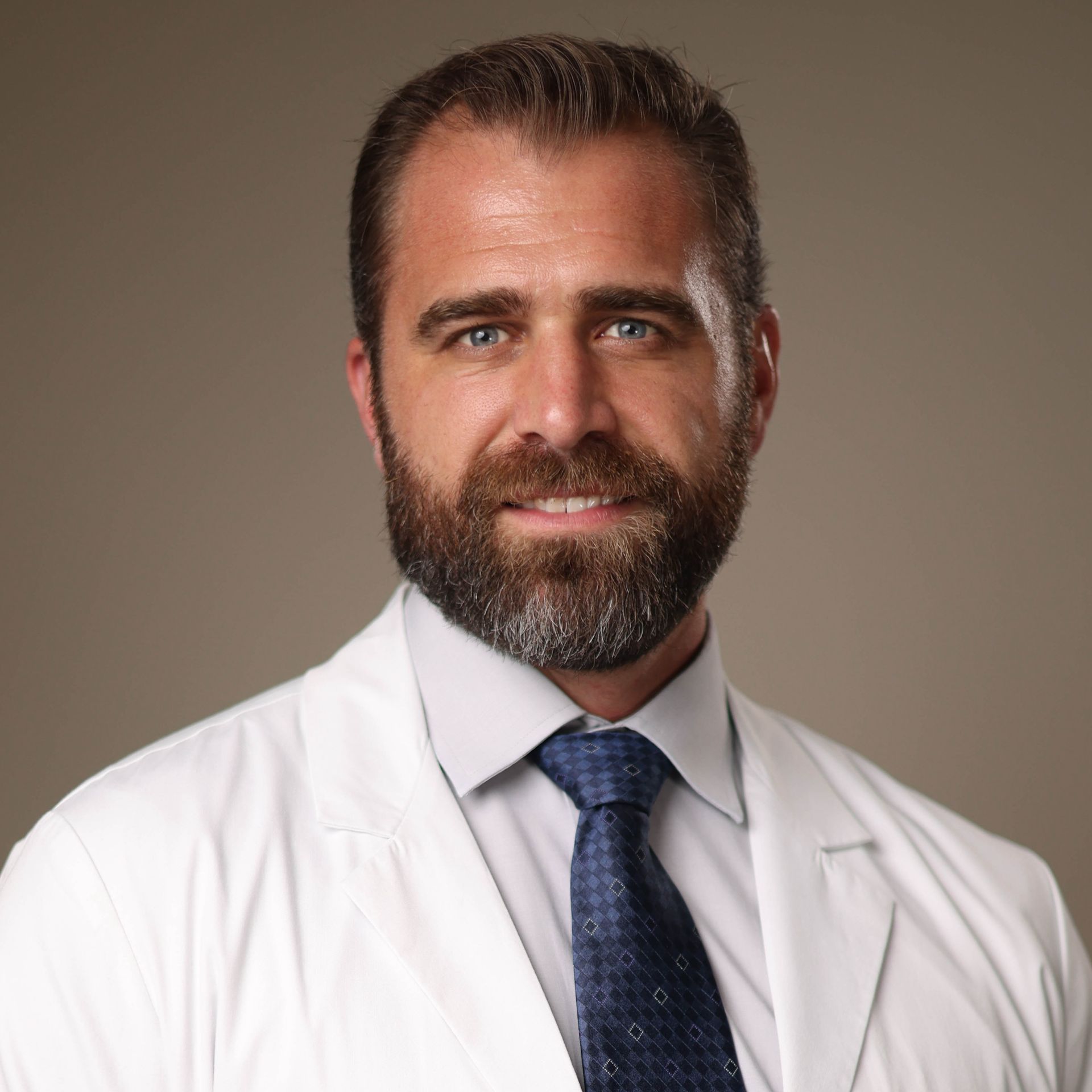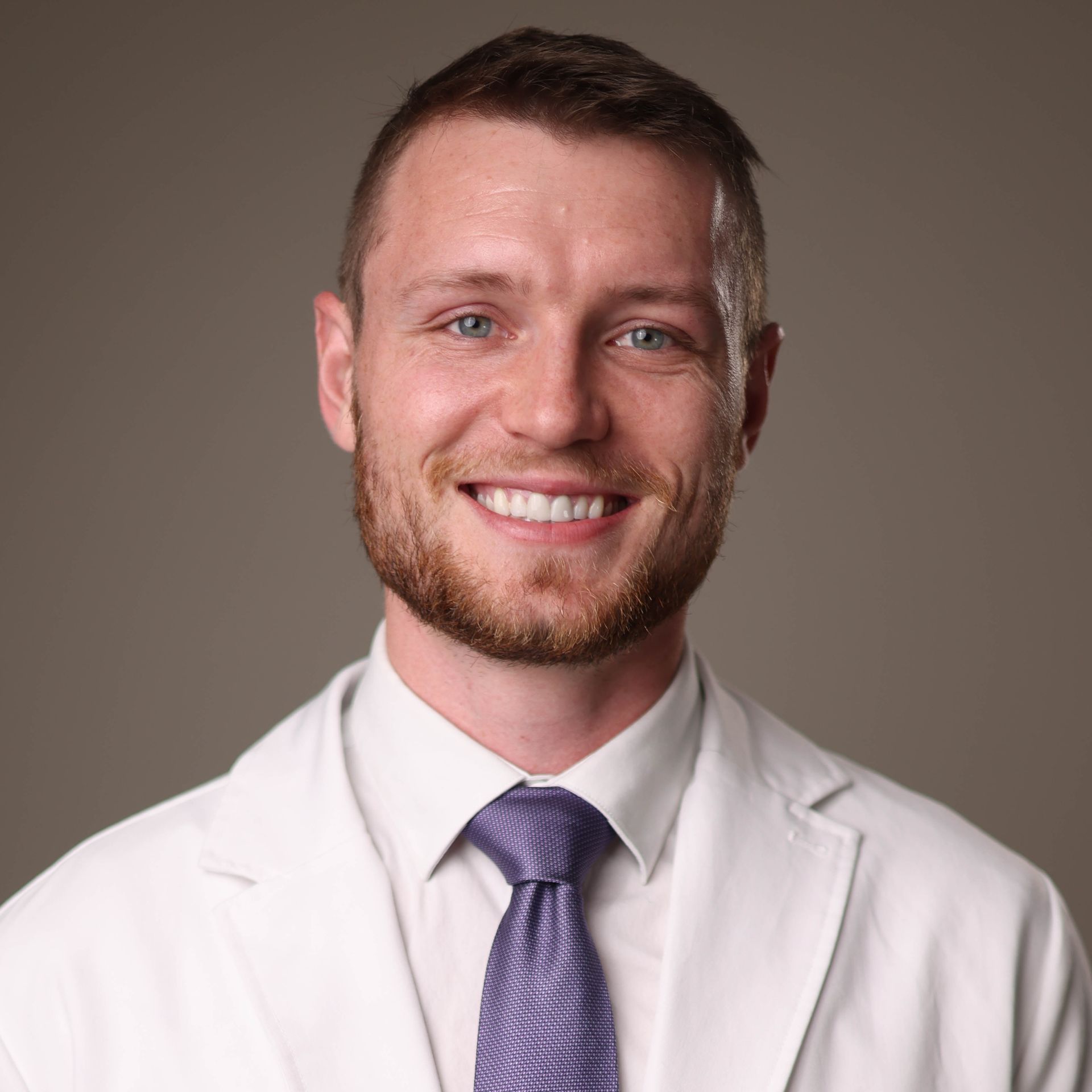Our Doctors
Dr. Chris Slininger
Craniocervical Specialist
Dr. Ethan Surprenant
Upper Cervical Chiropractor
Consistent Outcomes for Ménière’s Disease
Upper cervical care has demonstrated unprecedented positive outcomes for people suffering from Ménière’s disease, providing relief from debilitating symptoms like vertigo, tinnitus, and dizziness. Dr. Michael Burcon, a renowned upper cervical chiropractor who has published extensively and lectured internationally at Ménière’s disease conferences, has helped to clarify the powerful results possible through upper cervical care.
In one published study, Dr. Burcon reported a 97% improvement in vertigo symptoms among 300 consecutive patients. Notably, all these patients had a history of whiplash injuries an average of 15 years prior to the onset of their Ménière’s disease symptoms. His findings set a clear precedent for the outcomes that can be achieved by addressing upper cervical misalignments.
At Cerebral Chiropractic Center, our precision approach allows us to deliver similarly consistent results for people with Ménière’s disease. By targeting the root cause of symptoms through advanced upper cervical care, we help patients regain their quality of life.
The Problems Behind Ménière’s Disease
While the exact cause of Ménière’s disease remains unclear, research suggests that upper cervical misalignments play a significant role. These misalignments disrupt critical functions in the body and contribute to issues tied to Ménière’s disease symptoms.
- Pressure on the Eustachian Tubes:
Misalignments in the upper cervical spine can compress the Eustachian tubes, which regulate air pressure in the ear. This leads to improper pressure regulation, deterioration of the eardrum, and eventual hearing loss. - Tension on Cranial Nerves:
The brainstem and spinal cord are suspended by ligaments within the spinal canal. Upper cervical misalignments place tension on these ligaments, affecting cranial nerves responsible for balance and hearing. - Diminished Brainstem Blood Flow:
The vertebral arteries, which supply blood to the brainstem, can become compressed by upper cervical misalignments. Reduced blood flow contributes to balance problems and vertigo. - Inflammation of the Upper Neck Joints:
Whiplash injuries—strongly associated with Ménière’s disease—often inflame these joints, causing adhesions and nerve irritation. Symptoms may include neck pain, dizziness, headaches, and hearing loss. - Turbulent Cerebrospinal Fluid (CSF):
The cerebrospinal fluid, which cushions and protects the brain and spinal cord, can become turbulent due to upper cervical misalignments. This irritates nerves responsible for balance and eye movements. - Poor Immune Function:
Nerves in the upper cervical spine influence immune responses in the inner ear. Misalignments can impair this function, leaving the ear vulnerable to infection and inflammation over time.
Precision Care: How Upper Cervical Care Helps Ménière’s Disease
At Cerebral Chiropractic, we specialize in addressing Ménière’s disease through the Advanced Orthogonal Technique, a highly precise and non-invasive form of upper cervical care. (Learn more about Advanced Orthogonal here.) This targeted approach focuses on correcting misalignments in the upper cervical spine, which are directly linked to the underlying causes of vertigo, tinnitus, and other debilitating symptoms.
Misalignments in the upper cervical spine can disrupt critical systems in the body, leading to issues such as:
- Eustachian tube compression: Misalignments can block proper air pressure regulation in the ear, leading to hearing loss over time.
- Tension on cranial nerves: The upper cervical spine impacts the nerves responsible for hearing and balance, which are easily irritated by misalignments.
- Reduced blood flow to the brainstem: The vertebral arteries can become compressed, decreasing blood flow and contributing to balance problems and vertigo.
- Inflammation of neck joints: Whiplash or neck injuries often inflame these joints, causing pain and worsening symptoms like dizziness and hearing issues.
- Turbulent cerebrospinal fluid (CSF): Irregular CSF flow caused by upper cervical misalignments irritates the nerves responsible for balance and coordination.
- Compromised immune function: Misalignments impair immune signals to the inner ear, leaving it vulnerable to infection.
Using the Advanced Orthogonal Technique, we carefully realign the upper cervical spine with gentle, non-invasive adjustments. Unlike traditional chiropractic care, this method involves no cracking, twisting, or popping of the neck. Instead, percussion sound wave technology delivers precise corrections tailored to your specific anatomy.
These corrections restore proper function to the Eustachian tubes, cranial nerves, brainstem, and inner ear. As these systems normalize, patients often experience relief from their Ménière’s disease symptoms and regain control of their lives. The reproducibility and consistency of these results are why upper cervical care is one of the most effective approaches to addressing Ménière’s disease at its root.
Real Stories: Hope for Ménière’s Disease
For many living with Ménière’s disease, the most frustrating part is not having a real answer or understanding the root cause of their symptoms. But when the root cause is identified and the treatment approach is precise and appropriate, there is hope that you can reclaim your life. At Cerebral Chiropractic, we’ve helped countless patients find lasting relief and get back to living the lives they deserve.
My vertigo symptoms are gone!
"Six weeks ago, I got very dizzy, and it started with a neck massage. When I got up, I couldn’t move my head—it felt like I was falling. A friend referred me to Dr. Chris Slininger at Cerebral Chiropractic, and I’m so glad they did. After persistent, sound wave adjustments and care, all of my dizziness is gone and staying gone!
On top of that, my posture has improved, and I feel steady on my feet again. I’m so thankful to have found the root cause and to finally be on my way to better health. If you’ve been struggling with vertigo like I was, I can’t recommend this care enough—it truly made a difference in my life."
– Debbie J.
Get Help Today
If you’ve been diagnosed with Ménière’s disease and are looking for a lasting solution, it’s time to explore upper cervical care. At Cerebral Chiropractic in St. Petersburg, our experienced doctors specialize in using the Advanced Orthogonal Technique to address the root causes of Ménière’s disease.
During your consultation, we’ll perform a comprehensive evaluation, including neurological assessments and advanced imaging, to determine if upper cervical care is right for you. If you’re a candidate, we’ll create a personalized treatment plan to help you find relief and reclaim your quality of life.
Contact us today at (727) 677-0001 or click the button below to schedule your consultation.
Relief from Ménière’s disease is within reach—take the first step today.
References
- Boneva D. Two Case Studies: Meniere’s Disease and Cervical Spine Trauma Post Upper Cervical Specific Chiropractic Care. 15th Annual Upper Cervical Spine Conference, Life University, Marietta, GA, November 21-22, 1998.
- Burcon MT. Upper Cervical Protocol for Ten Meniere’s Patients. 9th Annual Vertebral Subluxation Research Conference, Sherman College of Straight Chiropractic, Spartanburg, SC, October 13-14, 2001.
- Burcon M. Upper Cervical Protocol to Reduce Vertebral Subluxation in Ten Subjects with Menieres: A Case Series. J Vertebral Subluxation Res, June 2, 2008:1-8.
- Burcon M. Cervical Specific Protocol and Results for One Hundred and Thirty Nine Meniere’s Patients. 2008 International Research and Philosophy Symposium, Sponsored by Sherman College of Straight Chiropractic, Spartanburg, South Carolina, October 17-19, 2008.
- Burcon MT. Upper Cervical Specific Protocol and Results for 139 Patients with Medically Diagnosed Meniere's Disease. J Vertebral Subluxation Res, November 14, 2010:1-10.
- Burcon MT. Cervical Specific Protocol and Results for 300 Meniere’s Patients Over Three Years. 8th Annual International Research and Philosophy Symposium, Sherman College of Chiropractic Spartanburg, South Carolina, October 22-23, 2011.
- Jones MA, Salminen BJ. Meniere’s Disease Symptomatology Resolution with Specific Upper Cervical Care. J Upper Cervical Chiropr Res, March 29, 2012:31-9.
- Pennington D, Miller JD. Successful Chiropractic Management of a Patient with Meniere’s Disease post Vestibular Nerve Section: A Case Report. J Upper Cervical Chiropr Res, November 30, 2015:34-40.
- Burcon MT. Health Outcomes Following Cervical Specific Protocol in 300 Patients with Meniere’s Followed Over Six Years. J Upper Cervical Chiropr Res, June 2, 2016:13-23.
- Chung J, O’Connell C. Resolution of Symptoms in a Patient Suffering from Meniere’s Disease Following Specific Upper Cervical Chiropractic Care: A Case Study & Review of Literature. J Upper Cervical Chiropr Res, January 9, 2017:1-7.
- Gartner M, Bossart W, Linder T. Herpes virus and Ménière's disease, ORL J Otorhinolaryngol Relat Spec. 2008;70(1):28-31; discussion 31. doi: 10.1159/000111045. Epub 2008 Feb 1.
Related Articles
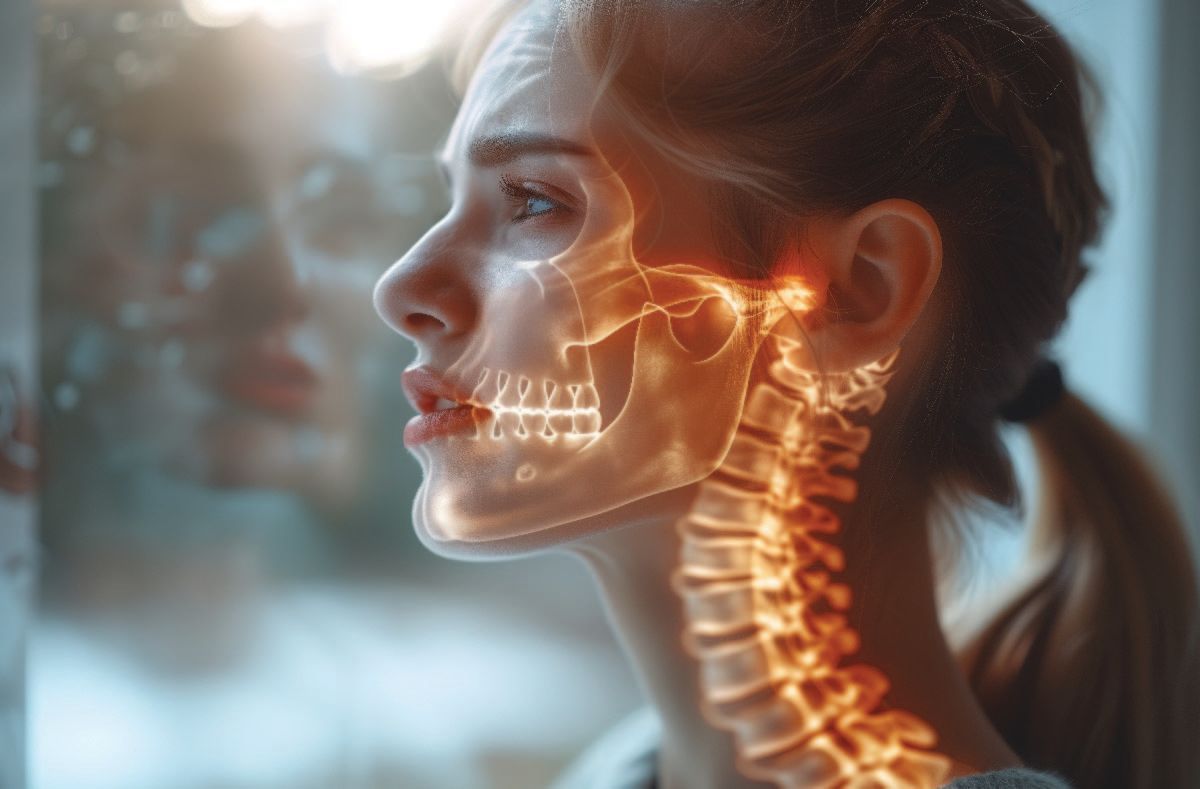

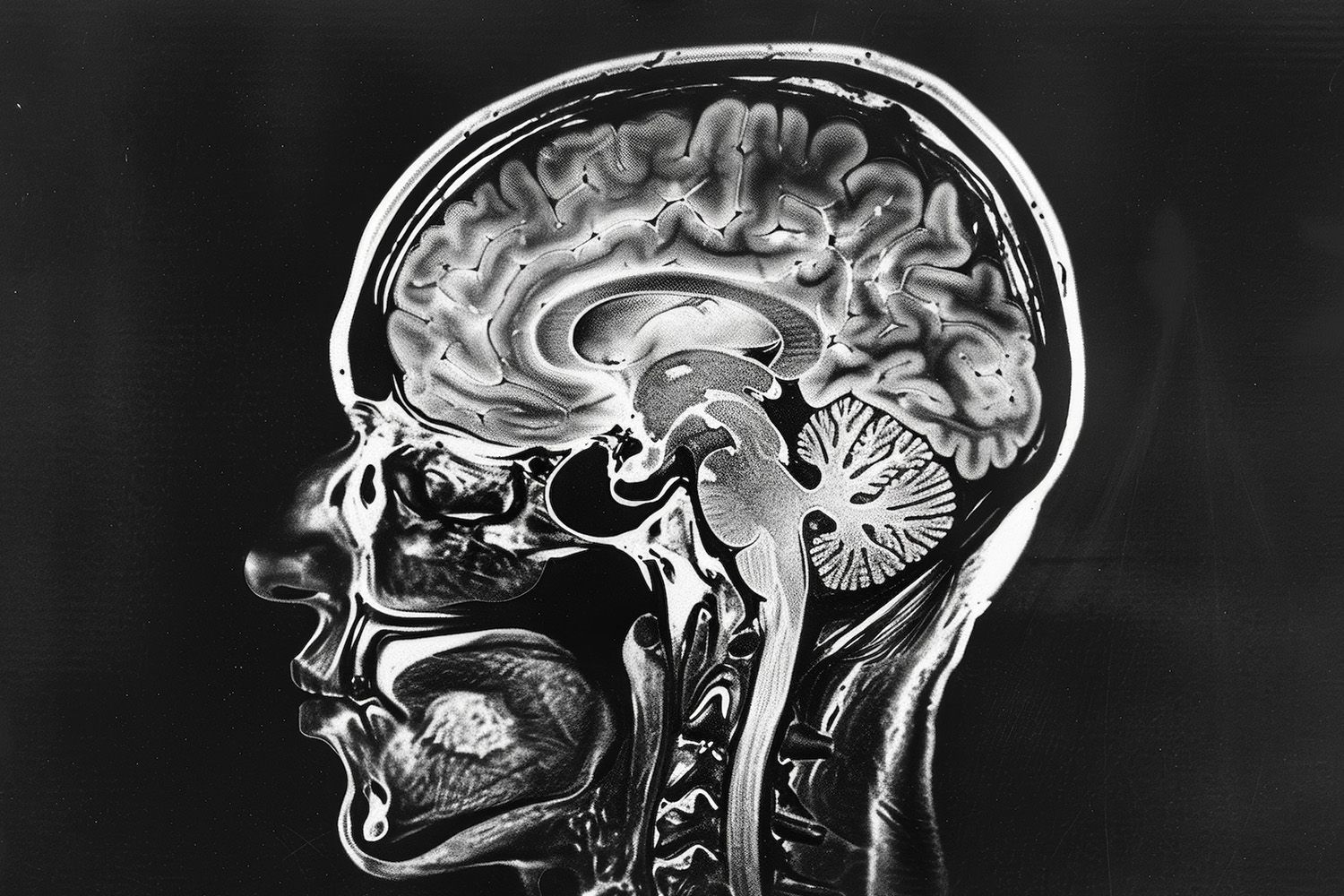
Our Doctors
Experts in Spinal and Neurological Care
Dr. Chris Slininger, DC, DCCJP
Craniocervical Specialist
Dr. Slininger focuses heavily on complex neurological conditions and advanced spinal challenges such as headaches, migraines, dizziness, vertigo, concussion, mTBI and more.
Dr. Ethan Surprenant, DC
Upper Cervical Chiropractor
Dr. Surprenant specializes in innovative, non-invasive Upper Cervical Chiropractic Care, uniquely addressing complex neurological conditions like dysautonomia, migraines, headaches, cranio-cervical syndrome, to restore lasting neurological health.
Schedule an Appointment
Expert care starts with discovery. Schedule a consultation with one of our doctors to see if you may be a candidate for care. Let's get down to the root cause of the problem. Fill out the form and we will get back to you to schedule your initial consultation.
Schedule an Appointment
Thank you for submitting your request for an appointment.
We will contact you as soon as possible to schedule your appointment. This is usually within 24hrs on business days (M-F). If you have any questions, feel free to call us at 727-677-0001.
Please try again later
About Us
Cerebral Chiropractic Center is located in St. Petersburg, FL. Our top-tier specialist provides cutting-edge upper cervical care and functional neurology, using advanced laser therapy and modalities, and teaching health education.
Office Hours
Monday 9am-12pm & 2pm-5pm
Tuesday 9am-12pm
Wednesday 9am-12pm & 2pm-5pm
Thursday 9am-12pm & 2pm-5pm
Friday 9am-12pm
By appointment only.
Contact info
7601 Dr. Martin Luther King Jr. St.
Suite E
St. Petersburg, FL 33702
(727) 677-0001
Care@CerebralChiropractic.com
Need a doctor near you? Go to
